Read time: 4 minutes
While most of us spend our evenings relaxing and getting some rest, Scott Livingstone is busy making his overnight rounds at McKesson’s Pharmaceutical Distribution Center in Methuen, Mass., about 30 miles north of Boston. As a senior facilities representative, Scott performs preventive maintenance and needed repairs to the 145,000-square-foot facility and its intricate operational systems to help ensure McKesson’s pharmaceutical customers—and ultimately patients—receive their vital medications and supplies on time, every time.
It’s a mission that Scott is proud to carry out. As a multi-skilled mechanic and former U.S. Marine, he’s spent his entire life serving others. He joined McKesson four years ago to continue doing just that—and more. The company recognizes and rewards employees who “bring better health to life” at work or in their communities—values that support Scott’s other mission in life: giving blood to those in need. Earlier this year, Scott received a McKesson Corporate Impact Champions award, which included a $1,000 contribution to his nonprofit of choice, for faithfully giving to his New England community through the American Red Cross. It’s something he’s done for many, many years.
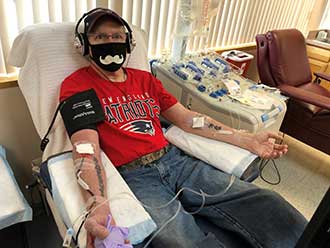 “I’ve given blood about 384 times since 2000, and made roughly 165 platelet donations since 2010,” shares Scott. “If giving blood can help save more than one life, I’ve been blessed to help a lot of people in 20 years. All thanks to my mother who encouraged me to give blood as she was doing at the time.”
“I’ve given blood about 384 times since 2000, and made roughly 165 platelet donations since 2010,” shares Scott. “If giving blood can help save more than one life, I’ve been blessed to help a lot of people in 20 years. All thanks to my mother who encouraged me to give blood as she was doing at the time.”
His mother passed away a year after he began giving blood, an event that further encouraged him to continue donating. “I realized it was my way, like hers, to give back to my community. Then when the September 11 terrorist attacks occurred in the U.S. that same year, it solidified my commitment. I saw how important blood donations were to my country as well as my community.”
According to the American Red Cross, there’s a constant and ongoing need for blood and platelet donations. Every two seconds, someone in the U.S. needs blood for lifesaving care. Blood and platelets can’t be manufactured, either. They can only come from donors, and only about 3% of those who are age-eligible donate annually.
Platelets are the cell fragments in blood that control bleeding, so they’re particularly crucial to helping people survive surgeries, fight chronic illness or recover from injuries. But unlike red blood cells that can be stored up to 42 days, platelets must be used within just five days.
“If giving blood can help save more than one life, I’ve been blessed to help a lot of people in 20 years.”
Since discovering a decade ago that his cells produce a high platelet count, Scott’s focus has been on donating platelets. He had been donating on a regular schedule of every two weeks when the pandemic occurred.
In order to help flatten the curve of COVID-19 cases, most blood donation centers closed for more than a month. Only two centers collecting platelets currently remain open in Scott’s area. The closest is in Danvers, Mass., which is a 45-minute drive each way from his home. Despite the longer trip, Scott has managed to get back on his regular donation schedule.
Once at the center, it takes about three hours from start to finish to collect his platelets from his other blood components, and then return these fluids back to him through the other arm. It’s a cycle that repeats several times. This process allows donors like Scott to contribute what would normally take up to five whole blood donations and helps up to three people. And, donors can contribute platelets up to 24 times a year, compared to a maximum of six times a year for whole blood donations.
“I don’t mind the time it takes to donate. The huge benefit it provides—saving lives!—outweighs any little inconveniences I experience twice a month,” Scott says. “I also think it’s the best donation you can give, as those in need get 100% of what you give. There’s no overhead. Plus, during your donation you can relax, watch a movie, listen to music … and in just a few hours you’ve donated enough platelets to help as many as three people. That’s huge, too.”
Scott encourages everyone to give blood regularly to meet the constant and ongoing need for blood in their own communities and across the country—or at least to give it a try if they’ve never given before. “As long as I’m healthy and able, I don’t plan to ever stop,” he says. “You might even say giving is in my blood.”
You might also say serving faithfully is part of Scott’s makeup. On his right arm is a tattoo in Old English script that reads, “Semper Fi.” Short for semper fidelis and the motto of the U.S. Marine Corps, it’s a Latin phrase that means “always faithful” or “always loyal.” And that describes Scott to a tee—both inside and outside McKesson.
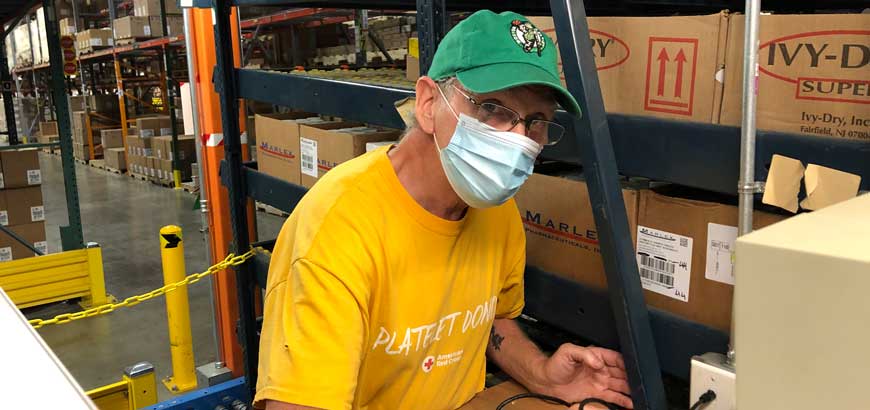
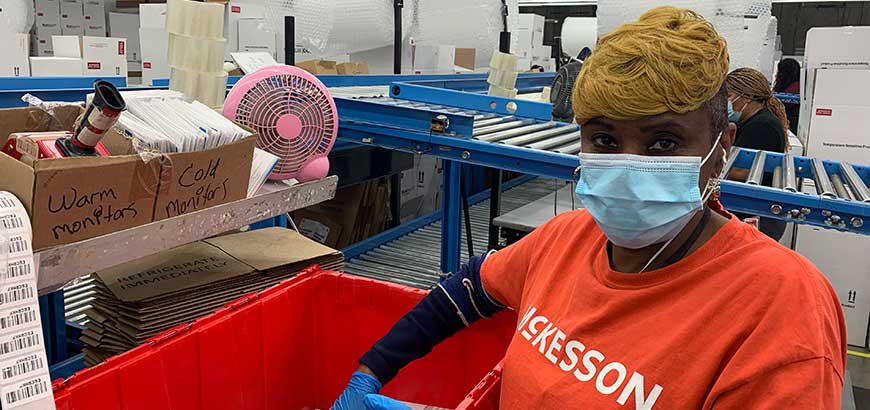
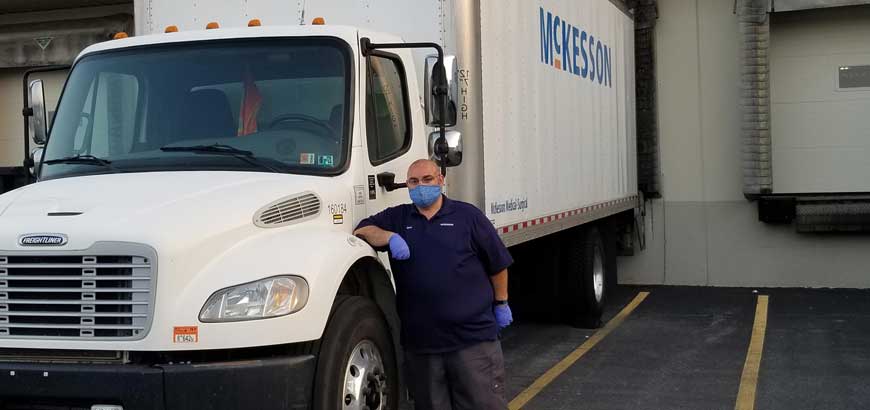
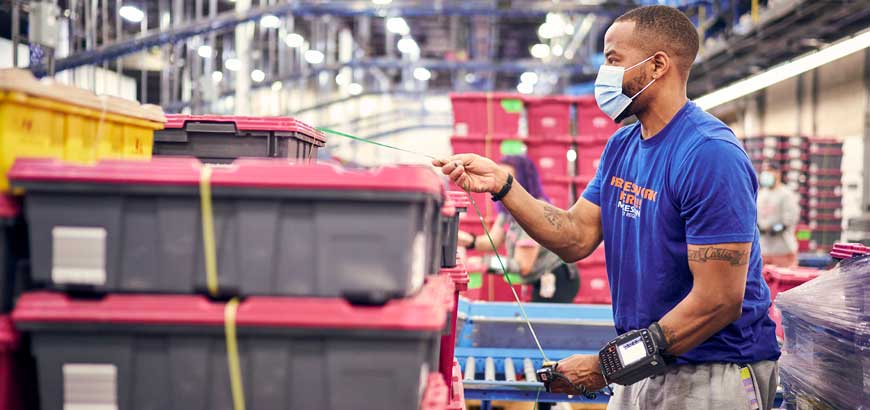
Share
Post
Post
Email